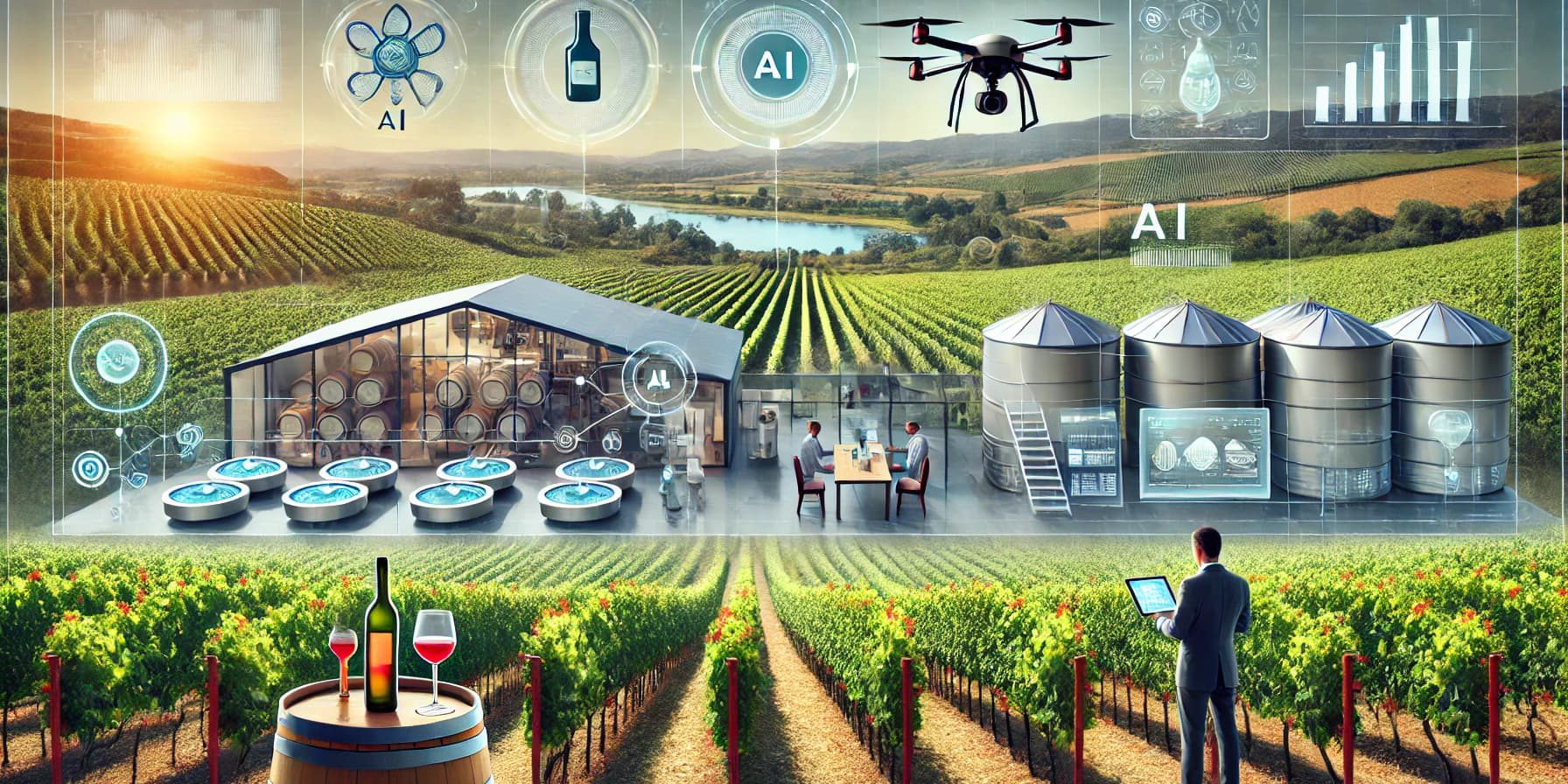Introduction to Artificial Intelligence?
Artificial Intelligence (AI) is having a growing effect and helping change the wine industry in a number of ways. Firstly, what is Artificial Intelligence (aka AI)? AI is a branch of computer science that involves creating machines/programs capable of performing tasks that typically require human intelligence.
AI’s abilities include problem-solving, learning, reasoning, ability to analyse large data sets, identify patterns, create predictive models and understand natural language. AI has significantly impacted various sectors globally, transforming industries such as healthcare, finance, manufacturing, and now, the winery industry. AI’s potential to optimise operations, reduce costs, and enhance decision-making across various domains.
AI Companies Transforming the Winery Industry
How is AI improving the Winemaking process?
AI is helping the winemaking process by assisting wineries in creating wines tailored to consumer preferences. A great example of this is Tastry is a tech firm that has developed an AI-driven app, that utilises chemical analysis of wines and consumer taste data to predict which wines will be most popular among different demographics, including younger crowds.
Various wineries, such as Atlas Wine Company based in California, have collaborated with Tastry to create new wine blends that cater to evolving consumer tastes. The insights provided by Tastry’s AI have helped these wineries increase sales and improve customer satisfaction by aligning their products more closely with consumer preferences. (Tastry)
How is AI enhancing Vineyard Management?
AI is revolutionising the winemaking process by offering innovative solutions that optimise various stages of production and management. For instance, Deep Planet developed VineSignal, an AI-driven platform that specialises in vineyard management. VineSignal provides real-time data on vineyard conditions, helping viticulturists make informed decisions on irrigation, fertilisation, and disease control. The platform uses satellite imagery, weather data, and soil moisture levels to predict grape yields and optimise vineyard operations. VineSignal is designed to improve sustainability and productivity in vineyards .
Vineyards in Australia and South Africa have adopted VineSignal to enhance their vineyard management practices. By using AI to monitor and manage vineyard conditions, these vineyards have achieved better crop yields and reduced resource wastage, contributing to more sustainable winemaking practices. (Deep Planet)
How is AI improving water management in vineyards?
AI is playing a crucial role in precision agriculture, particularly in managing water resources for optimal vineyard health. Tule Technologies specialises in using AI and computer vision to monitor water stress levels in vineyards. Tule Vision system allows growers to capture images of their vines, which the AI then analyses to determine the plants’ water needs. This ensures optimal irrigation, preventing both overwatering and drought stress.
Tule Vision is primarily adopted by US vineyards, where precise water management is crucial due to frequent droughts. The technology helps growers maintain vine health and improve grape quality by providing accurate irrigation recommendations.(Tule Technology)
How is AI being used to create innovative blends?
AI is not only optimising vineyard management but also revolutionising the creative process of winemaking. OpenAI’s ChatGPT was utilised by Aubert & Mathieu to produce a unique wine called “The End.” This AI analysed data on wine preferences, flavours, and historical wine data to assist in formulating a blend that appeals to modern palates. This application of AI demonstrates its creative potential in winemaking, enabling the creation of innovative and appealing wine blends .
Aubert & Mathieu’s use of ChatGPT to create “The End” showcases how AI can be harnessed to produce new and exciting wine blends. This approach highlights the intersection of technology and creativity in the winery industry, offering a glimpse into the future of winemaking. (Chat GPT wine)
Whether you are a fan of using AI technology within the winery industry or not, the integration of AI shows how technology can enhance traditional practices. From creating AI-generated wines to optimising vineyard management, AI is proving to be a valuable tool for wineries looking to innovate and stay competitive. As AI continues to evolve, its applications in the winery industry are likely to expand, offering even more opportunities for enhancing wine quality and sustainability.






